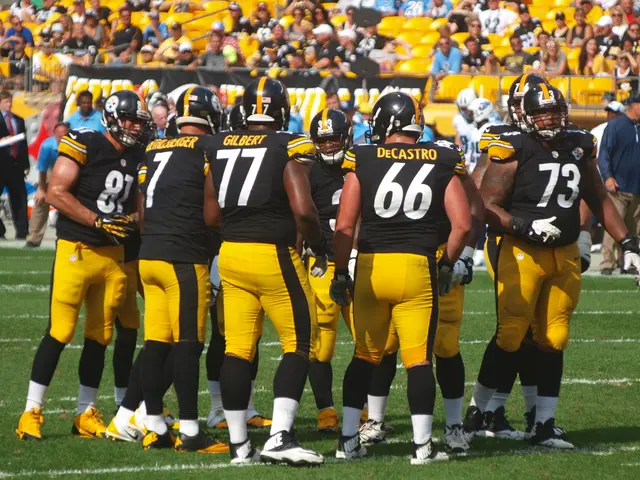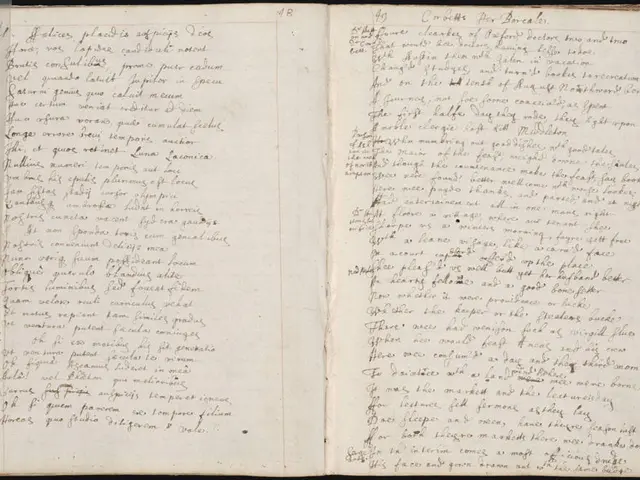Controversial Pardons Granted by Trump in His Final Term Involve Fraud Convicts and Loyal Supporters
Trump's Pardons for Alleged Wrongdoers: An Informal Look
In true Trump fashion, the President has been granting pardons and commutations to a motley crew of individuals with colorful pasts. Here's a rundown of those whose legal troubles he's clearing as we head into the final stretch of his term.
1. The Chrisleys
In May, the President announced his intent to pardon Todd and Julie Chrisley, reality TV stars turned convicts following bank fraud and tax evasion charges. The couple submitted bogus financial records to obtain over $30 million in loans, which they used to buy luxury cars, expensive clothes, real estate, and fund their jet-setting lifestyle, according to the Justice Department. They also failed to pay nearly $500,000 in taxes and refused to file returns from 2013 to 2016. Despite their plea of innocence, the Trump Train is coming to their rescue. In a heartwarming video posted by a White House aide, the President can be heard chatting with the couple's children, assuring them their parents would be free and in the clear "by tomorrow." Savannah, one of the siblings, had been advocating for her parents, likening their situation to the President's own legal woes.
2. Michael Grimm
Trump pardoned the former Rep. Michael Grimm of New York in May for tax fraud and related charges. The GOP representative pleaded guilty in 2014 to underreporting wages and revenues to the government and filing fraudulent tax documents concerning his restaurant. Grimm managed to secure reelection in 2014, despite the indictment, but resigned in January 2015 after pleading guilty and serving eight months in prison. Grimm made a comeback bid in 2018 but lost the primary for his Staten Island and southern Brooklyn district. He was later paralyzed from the chest down after a horse-riding accident.
3. Scott Jenkins
The President pardoned former Virginia sheriff Scott Jenkins in May for fraud and bribery charges. Jenkins was accused of accepting $75,000 bribes and issuing badges to eight untrained and unvetted individuals in exchange for cash and campaign contributions. Jenkins maintains his innocence and believes he's a victim of an overzealous Justice Department under Biden. In a post on Truth Social, Trump hailed Jenkins as a longstanding supporter and called the case against him a "witch hunt."
4. Devon Archer
A former business partner of Hunter Biden, Devon Archer, received a pardon in March for his involvement in a scheme to issue fraudulent tribal bonds worth over $60 million. He was sentenced to a year and a day in prison in 2018 and appealed his case all the way to the Supreme Court, which refused to hear his appeal in 2024. According to Trump's staff secretary Will Scharf, the tone and tenor of the case against Archer shifted significantly after he began cooperating with congressional investigators and serving as a witness against Hunter Biden and the Biden family.
5. Jason Galanis
In 2020, Jason Galanis was sentenced to over a decade in prison for fraud schemes, including the same scheme as Archer involving Native American tribal bonds. Trump commuted Galanis' sentence to time served. Galanis, a former business partner of Hunter Biden, testified in a House GOP-led investigation into Hunter Biden, describing himself as a former business partner of the President's son. Galanis claimed they hoped to make "billions," including by trading on Hunter Biden's family name. However, the younger Biden denied ever meeting Galanis except for a brief encounter ten years ago.
(Insight: Trump's pardons of white-collar criminals are not confined to this list; other high-profile individuals have received similar clemency, consistent with a trend from his first term.)
- The President's decision to pardon Todd and Julie Chrisley, reality TV personalities convicted of bank fraud and tax evasion, has sparked controversy in the realm of general-news and crime-and-justice.
- The pardoning of Michael Grimm, a former congressman from New York, for tax fraud and related charges, has raised questions about the political implications of Trump's use of executive power in the domain of law and politics.
- The pardon of Scott Jenkins, a former sheriff from Virginia, for fraud and bribery charges, has been met with mixed reactions in the political and legal spheres, with some viewing it as an example of Trump's persistence in rescuing allies from legal troubles.
- The pardon of Devon Archer, a former business partner of Hunter Biden, for his role in a fraudulent tribal bonds scheme, adds another layer to the complex web of business, politics, and finance involving the Biden family.
- The commutation of Jason Galanis' sentence for fraud schemes, including the same tribal bonds scheme as Archer, further underscores Trump's pattern of granting clemency to white-collar criminals, a trend that extends from his first term in office.








